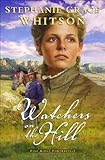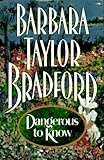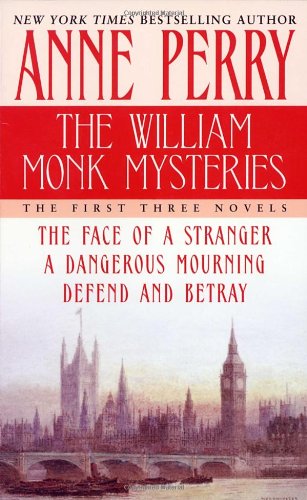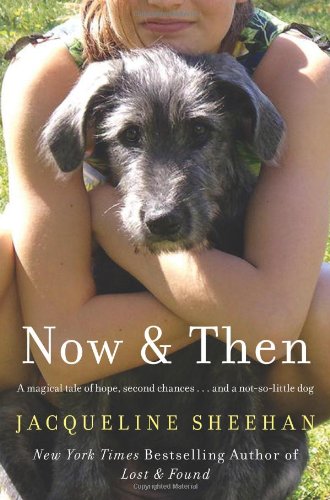Historical fiction/romance set in New Orleans, Louisiana and a plantation near New Orleans prior to and during the American Civil War.
Miriam's mother had been brutally attacked in a pogrom against Jewish villagers in a small German town, and tragically died moments after Miriam's birth. Her father left shortly afterward to make his fortune in America, leaving Miriam and her brother David with their grandfather and spinster aunt. Years later, he returned and took the children to his grand home in New Orleans. At the age of 16, as was the custom at that time, Miriam was given in marriage to Eugene, a man at least ten years older. Miriam and Eugene doted on their twins, a son and a daughter, but there was no love, no joy between them. They lived separate lives in the same house, even in the same bedroom.
These were perilous times; abolitionist feelings against the "peculiar institution" of slavery were mounting, and soon the storm of Civil War broke loose. There was a storm in Miriam's heart as well, as she dealt with guilt, loss, tragedy, and heartbreak.
Showing posts with label 19th century. Show all posts
Showing posts with label 19th century. Show all posts
Tuesday, February 13, 2018
Thursday, October 1, 2015
The Moonstone, by Wilkie Collins

I bought this book because it was recommended by some of my friends. I tried to start it a few months ago, but distractions kept me from being able to immerse myself in it at that time, and I find that immersion is required for many of the 19th century English classics (Austen, and Dickens, for example).
This is a Bantam Classic paperback in gently used condition. The cover is a little worn and the pages are slightly yellowed with age (3rd printing, 1986). They are not marked nor dog-eared.
The Moonstone is considered the first modern detective novel, but Collins himself called it "A Romance". Certainly, it had romance in it, but the major plot revolved around the solving of the mysterious disappearance of a large diamond which had been presented to a young lady on her 18th birthday.
The story begins many centuries before, with a large golden-yellow diamond set in the forehead of an Asian Indian idol, the moon god. It is constantly watched by three Brahmin Indians, succeeding in turn by three more in each generation. It is their duty to always know where the diamond is, and if possible, to return it to its rightful place. Its turbulent history includes a curse, many wars and invasions, desecration and theft. Finally, another invading army, the British, sack and plunder the castle, and when it's all over, the diamond has been removed to England.
Two years after the Moonstone has been discovered missing from the sitting room of Miss Rachel Verinder, a family member and their lawyer decide it is worthwhile to have a written record of all the events of that evening and following. Thus we have the story, written as reports from the principals, beginning with the family's elderly and faithful servant, the butler and steward, Mr. Gabriel Betteredge. Reports are also given by Miss Clack, a "poor relation" spinster lady who is much concerned with missionary endeavors and is given to writing in excessively flowery language; by Mr. Bruff, the family's solicitor, mentioned above; by a cousin and suitor of Miss Verlinder, Franklin Blake; by physician's assistant Ezra Jennings; by the famous London detective, Sergeant Cuff; and by the family doctor, Mr. Candy.
The Epilogue consists of three more reports: by Sergeant Cuff's man, by a ship captain, and by Mr. Murthwaite, a man known to the family, who is well traveled in Asia and in Europe.
Of all the characters, I liked Mr. Betteredge best. (I'll have to re-read Robinson Crusoe now!) I also liked Ezra Jennings and Sgt. Cuff, and I learned to like Rachel Verinder. She began as a spoiled teenager, but grew to a wise, forgiving, and loving young lady. Of course, the most pitiable was poor Rosanna Spearman, who loved in vain.
There are several suspects who had motives for stealing the diamond, and I confess I was unable to guess who was the guilty party.
Labels:
19th century,
diamond,
England,
India,
legend,
mystery,
The Moonstone,
Wilkie Collins
Saturday, August 1, 2015
2 books: Watchers on the Hill, and Dangerous to Know

I finished it a few days ago. Written by Stephanie Grace Whitson, this is a Christian romance book of pioneer, ranching, and U. S. Cavalry days on the American frontier. A widow returns to her father's home to make a new life for herself and her wayward son. Romance beckons.
This book is the second in a series. While it could have stood alone successfully, there were too many annoying references to earlier times. (I have not read the first of the series.) However, it was a pleasant way to pass time.

Another romance, not Christian, written by Barbara Taylor Bradford. I started it yesterday, and am not liking the "spicy" passages. However, I probably will keep reading, just to find out who killed the old man. (Not a spoiler; we learn of his death on the first page.)
August 2 - On second thought, I won't finish it. I'll flip to the back to see how it ends, but I don't think I can swallow any more.
Monday, July 6, 2015
The William Monk Mysteries: The First Three Novels, by Anne Perry

Read, reviewed, and given away in January, 2015
I thoroughly enjoyed this trilogy of the first three William Monk mysteries by Anne Perry. Each of the three actually was two mysteries:The whodunnit in each case and also the developing revelations of William Monk"s identity and background following an accident in which he sustained a head injury and subsequent amnesia.
Mr. Monk is a police detective in 1850s London. Ms. Perry describes the Dickensian scenes very well, and the reader is drawn into the scenes: the busy street life, the pubs, the overwhelming and frightening ghettos, as well as the luxuries of the upper classes. The endings were completely surprising, uncomfortably so.
I will look for more William Monk mysteries by Anne Perry.
Labels:
19th century,
amnesia,
Anne Perry,
London,
mystery,
The William Monk Mysteries,
trilogy
Saturday, June 27, 2015
Now & Then, by Jacqueline Sheehan

Read, reviewed, and released in February-March, 2012
It seems to be sort of fantasy genre, which isn't usually my choice, but I tried it.
I'm glad I did, it was an interesting and enjoyable book with a mixed-up plot. In the midst of a family crisis (the near-fatal accident of the protagonist's brother), a busy young professional woman and her teenage nephew are suddenly whisked through the ocean and back in time to 19th century Ireland, just before the great potato famine. The woman finds herself in the household of a poor servant class family, while the young boy becomes the pampered foster child of an English aristocrat.
Labels:
19th century,
aristocracy,
fantasy,
Ireland,
Jacqueline Sheehan,
Now and Then,
time travel,
working class
Subscribe to:
Posts (Atom)